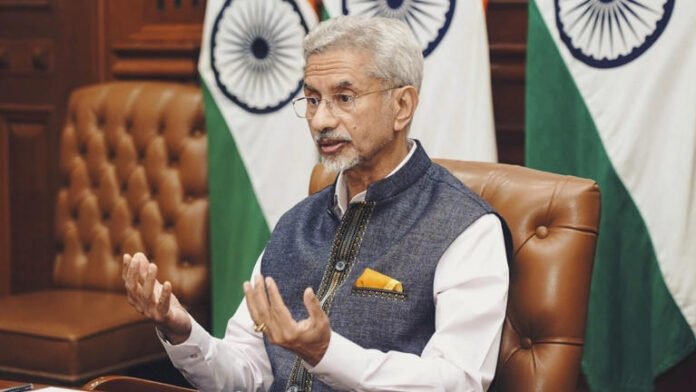In a recent assertion, India’s External Affairs Minister, Dr. S. Jaishankar, emphasized that the resolution of the Kashmir issue hinges on Pakistan vacating the territories it currently occupies, which India considers its own. This perspective underscores India’s longstanding stance on the territorial dispute and highlights the complexities surrounding the region’s history and politics.
Historical Context
The Kashmir conflict traces its roots to the partition of British India in 1947, which led to the creation of India and Pakistan as separate nations. The princely state of Jammu and Kashmir, with its strategic location and diverse population, became a focal point of contention. The then-Maharaja Hari Singh faced the dilemma of acceding to either nation. Amidst internal and external pressures, and following an invasion by tribal militias from Pakistan, the Maharaja signed the Instrument of Accession to India in October 1947, seeking military assistance in return.
Subsequently, India referred the Kashmir issue to the United Nations in 1948, a move that Dr. Jaishankar later described as a “fundamental error,” suggesting that it internationalized a matter that could have been resolved bilaterally.
The UN’s involvement led to resolutions recommending a plebiscite to determine the region’s future, contingent upon certain conditions, including the withdrawal of Pakistani forces from the areas they had occupied. However, differing interpretations and lack of mutual agreement have prevented the plebiscite from taking place.
Pakistan-Administered Regions
The areas currently administered by Pakistan, referred to as Azad Jammu and Kashmir (AJK) and Gilgit-Baltistan, encompass significant portions of the erstwhile princely state. India labels these regions as “Pakistan-occupied Kashmir” (PoK) and asserts that their control by Pakistan is illegal. Dr. Jaishankar’s recent remarks reiterate India’s demand for Pakistan to vacate these territories, viewing their return as essential for a comprehensive resolution of the Kashmir dispute.
Abrogation of Article 370
In August 2019, the Indian government abrogated Article 370 of its Constitution, which had granted special autonomy to the state of Jammu and Kashmir. This move was justified by Indian authorities as a means to integrate the region more fully into the country and to promote socio-economic development. Dr. Jaishankar has defended this decision, stating that it closed a “window of vulnerability” that had been exploited both domestically and internationally. He argued that the special status had been misused to foster separatism and hinder the region’s progress.
International Perspectives
The international community’s stance on Kashmir has evolved over the decades. While the UN resolutions of the late 1940s and early 1950s called for a plebiscite, global geopolitical dynamics have shifted since then. Dr. Jaishankar has observed that many countries now view the Kashmir issue as an internal matter of India, especially following the abrogation of Article 370. He noted that most nations understand the historical and constitutional context of India’s actions and recognize that countries undertake such internal administrative changes.
Pakistan’s Position
Pakistan, on the other hand, continues to contest India’s claims over Jammu and Kashmir. It views the region as disputed territory and advocates for the implementation of UN resolutions, including the proposed plebiscite. Pakistan’s leadership has consistently raised the Kashmir issue in international forums, highlighting alleged human rights violations and calling for global intervention. However, India’s position remains firm that any discussion on Kashmir should focus on the vacation of territories occupied by Pakistan.
Path to Resolution
The path to resolving the Kashmir issue is fraught with challenges. India maintains that Pakistan’s support for cross-border terrorism has been a significant impediment to peace efforts. Dr. Jaishankar has emphasized that meaningful dialogue can only occur in an environment free from terror and violence. He has called on Pakistan to dismantle the infrastructure supporting terrorism and to act against groups operating from its soil.
Furthermore, India advocates for bilateral discussions based on the Simla Agreement of 1972 and the Lahore Declaration of 1999, both of which emphasize resolving issues peacefully through direct negotiations without third-party intervention. However, these dialogues have often been disrupted due to incidents of violence and mutual distrust.
Dr. S. Jaishankar’s assertion that the Kashmir issue’s resolution depends on Pakistan vacating occupied territories reflects India’s unwavering stance on the matter. The historical complexities, coupled with geopolitical shifts and internal policy decisions like the abrogation of Article 370, have added layers to the dispute. While both nations profess a desire for peace, achieving a lasting solution requires addressing core concerns, building mutual trust, and fostering an environment conducive to constructive dialogue.

